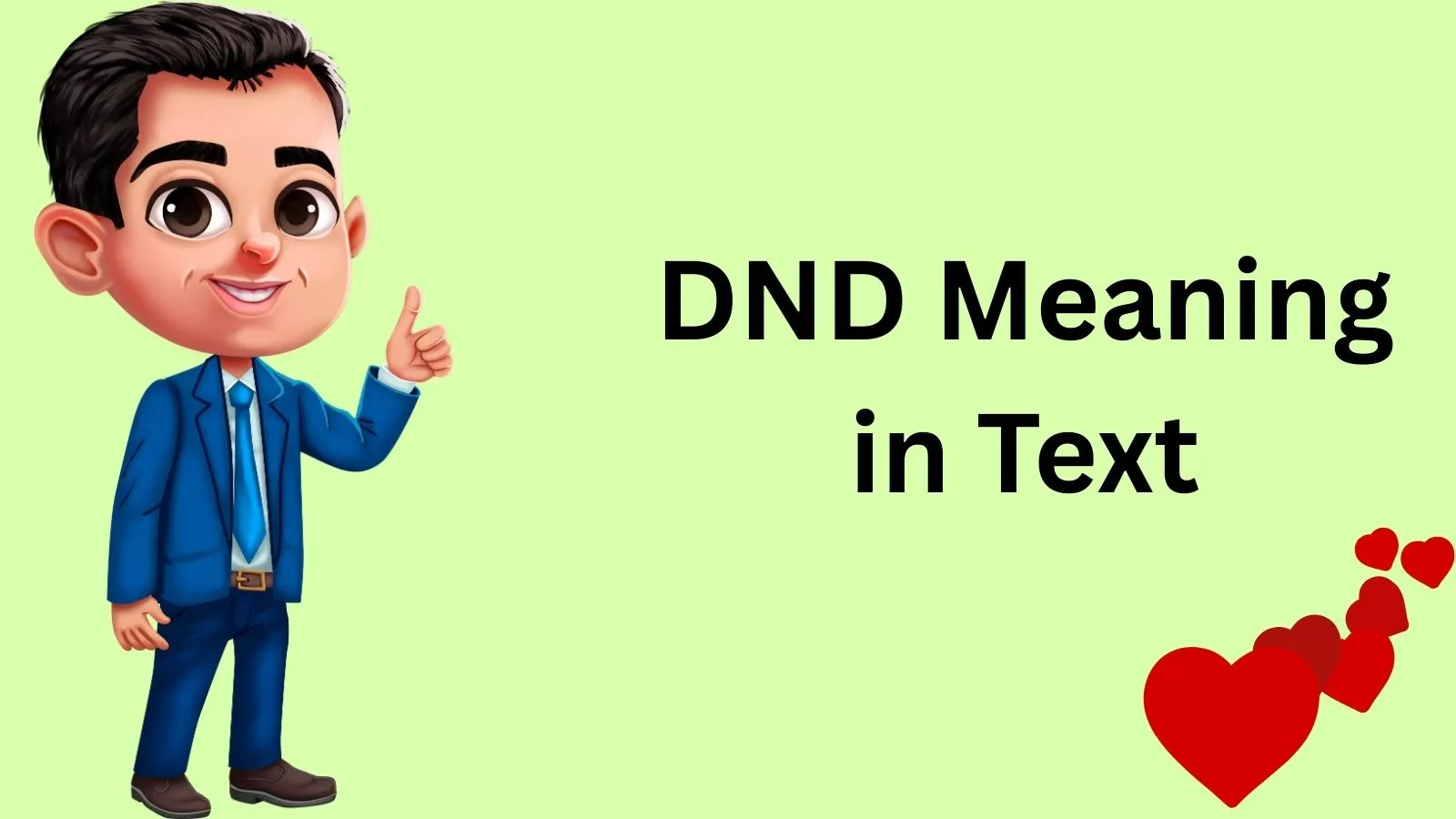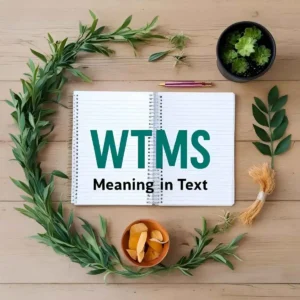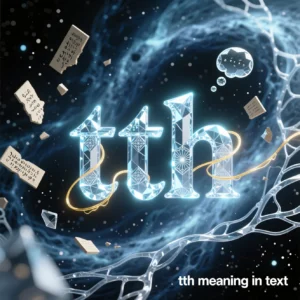In today’s fast-paced digital world, abbreviations and acronyms are everywhere.
They save time, make communication quicker, and often add a layer of personality to our messages.
One such acronym you’ve likely come across is DND. But what does it mean, and why is it so widely used?
DND is a versatile term that pops up in texting, social media, gaming, and even professional settings.
Understanding its meaning and usage can help you navigate conversations more effectively and avoid misunderstandings.
Whether you’re a gamer, a busy professional, or someone who loves texting, knowing what DND stands for and how to use it is essential.
Let’s dive into the world of DND and explore its meaning, history, and how it’s used across different contexts.
Definition & Meaning
DND stands for “Do Not Disturb.” It’s a simple yet powerful phrase that signals someone is unavailable or doesn’t want to be interrupted.
In texting and messaging apps, DND is often used to let others know you’re busy or need some quiet time. For example:
- “Hey, I’m in a meeting. DND for the next hour.”
- “DND right now, studying for exams.”
But DND isn’t just limited to texting. It’s also a feature on smartphones and devices that silences notifications. In gaming, it can mean Dungeons & Dragons, a popular tabletop role-playing game.
Key Point: Always consider the context to understand whether DND means “Do Not Disturb” or “Dungeons & Dragons.”
Background & History
The term DND has its roots in the early days of digital communication. As people began using pagers and early mobile phones, the need for quick, shorthand communication grew. Do Not Disturb became a common phrase, and its abbreviation, DND, naturally followed.
In the 2000s, smartphones introduced DND modes, allowing users to silence calls and notifications. This feature made the term even more popular.
Meanwhile, Dungeons & Dragons (D&D), the iconic fantasy game, has been around since the 1970s. Gamers often shorten it to DND in online forums and chats.
Today, DND is widely recognized in both contexts, making it a versatile acronym.
Usage in Various Contexts
Texting & Social Media
In casual conversations, DND is often used to set boundaries. For example:
- Friend 1: “Want to grab lunch?”
- Friend 2: “Sorry, DND right now. Working on a deadline.”
Gaming
In gaming communities, DND usually refers to Dungeons & Dragons. For example:
- Player 1: “What are you up to this weekend?”
- Player 2: “Playing DND with the crew. Can’t wait!”
Professional Settings
In workplaces, DND might be used in emails or chat platforms to indicate unavailability. For example:
- Colleague: “Can we discuss the project?”
- You: “DND until 3 PM. Let’s connect after.”
Common Misconceptions & Clarifications
One common misconception is that DND always means Dungeons & Dragons. While this is true in gaming circles, in most everyday conversations, it stands for Do Not Disturb.
Another misunderstanding is that DND is rude. In reality, it’s a polite way to communicate your need for focus or privacy.
Similar Terms & Alternatives
Here are some alternatives to DND:
- BRB: Be Right Back
- AFK: Away From Keyboard
- GTG: Got To Go
| Term | Meaning | Context |
| DND | Do Not Disturb | General, Gaming |
| BRB | Be Right Back | Casual |
| AFK | Away From Keyboard | Gaming, Work |
How to Respond to This Term
Casual Response
- “No worries! Let me know when you’re free.”
Funny Response
- “DND? Cool, I’ll just send carrier pigeons instead.”
Professional Response
- “Understood. I’ll follow up later.”
Regional or Cultural Differences
DND is widely understood in English-speaking countries. In non-English-speaking regions, people might use local equivalents. For example, in Spanish, No Molestar (Do Not Disturb) is common.
Usage in Online Communities & Dating Apps
On platforms like Tinder, DND might be used humorously:
- “DND unless you’re a pizza delivery guy.”
In gaming forums, it’s often about Dungeons & Dragons:
- “Looking for a DND group in NYC!”
Hidden or Offensive Meanings
Generally, DND is harmless. However, tone matters. Using it abruptly might come off as dismissive. Always pair it with a brief explanation to avoid misunderstandings.
Suitability for Professional Communication
While DND is fine for informal chats, in formal settings, it’s better to use full phrases like “I’m unavailable at the moment.”
FAQs
- What does DND stand for?
It stands for Do Not Disturb or Dungeons & Dragons, depending on the context. - Is DND rude?
Not if used politely. It’s a way to communicate your need for focus. - Can I use DND in professional emails?
It’s better to use formal language like “I’m currently unavailable.” - How do I respond to someone using DND?
Acknowledge their message and wait for them to reach out. - Is DND used globally?
Yes, but local equivalents exist in non-English-speaking regions.
Conclusion
DND is a handy acronym that simplifies communication in both personal and professional settings. Whether you’re signaling your unavailability or discussing your favorite game, understanding its meaning and usage ensures smoother conversations.



Pingback: TMP Meaning in Text: A Complete Guide to Understanding and Using It TMP Meaning in Text